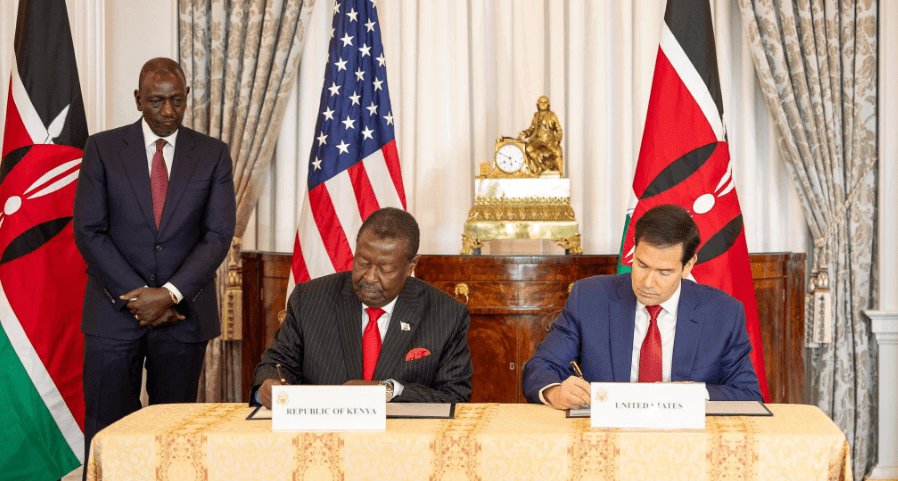
 Omtatah has dismissed the KPC privatisation plan as unconstitutional and ill-conceived.
Omtatah has dismissed the KPC privatisation plan as unconstitutional and ill-conceived.Busia Senator Okiya Omtatah has vowed to mount a fierce legal battle against the government’s plan to privatise the Kenya Pipeline Company, setting the stage for yet another high-stakes courtroom showdown between the state and the outspoken activist-turned-legislator.
Despite strong pushback, Parliament on October 2 approved the government’s plan to privatise KPC, paving the way for the state to divest 65 per cent of its shareholding to private investors.
The approval, contained in Sessional Paper No. 2 of 2025, allows the government to retain a 35 per cent stake while the remainder is offered through a public listing.
The privatisation, part of the government’s broader strategy to boost efficiency and cut the public wage bill in state-owned enterprises, is projected to raise about Sh100 billion to plug budget shortfalls.
In July, the Cabinet approved the partial divestment, framing it as a move towards “democratising ownership” and unlocking KPC’s commercial potential.
Treasury Cabinet Secretary John Mbadi has defended the plan, insisting that the transaction will not only inject capital but also strengthen governance and management structures at the state corporation.
According to the CS, KPC is not a loss-making outfit but currently yields modest dividends to the state.
“I am sure that if we privatise KPC and retain just a 35 per cent stake of ownership, we could make up to four or five times more out of that entity,” Mbadi said, noting that the company presently contributes only about Sh3 billion to Sh4 billion annually in dividends.
National Assembly Majority Leader Kimani Ichung’wah has also backed the move, describing it as a win-win arrangement that would deepen Kenya’s capital markets while leaving the government with strategic control through its residual stake.
But Omtatah has dismissed the plan as unconstitutional and ill-conceived.
First, he argues that the Kenya Pipeline Company does not qualify as a parastatal and therefore cannot be sold in the manner proposed by the government.
“There are no shares in KPC, so what are they selling?” he posed.
“KPC is a limited company under CAP 406 of the laws of Kenya, so it cannot be done the way they are trying to do,” he added.
Speaking to the media on Monday, the Busia senator warned that the government should brace for a bruising legal confrontation.
“We are going to have a very dirty fight in the courts, and this is a matter we shall fight up to the Supreme Court,” he said.
“Anybody who thinks that they are going to privatise KPC today is dreaming.”
Instead of offloading its stake, Omtatah believes the government should leverage KPC’s robust infrastructure to expand operations across the East African Community.
“The government should be negotiating with Uganda for wayleaves to take that KPC to Kampala, negotiate with Rwanda, Burundi and Congo (and) take KPC up to Goma so that we can dominate these markets and provide service in hydrocarbons,” he said.
Known for his relentless pursuit of public interest litigation, Omtatah’s latest threat signals a legal storm that could delay or derail one of the government’s most ambitious privatisation drives in years.


















